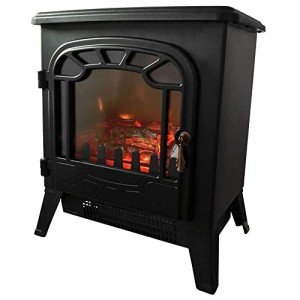The Best Fireplace s: A Comprehensive Guide for Homeowners
Fireplaces have actually long been a precious function in homes, supplying both warmth and an inviting atmosphere. They can be found in numerous styles, sizes, and fuel types, allowing homeowners to select one that fits their personal visual and heating needs. This post digs into the very best fireplaces, highlighting key features and factors to consider to help you make an informed choice.
Types of Fireplaces
Comprehending the various kinds of fireplaces is crucial in picking the best alternative for your home. Below are the most typically used fireplaces:
Wood-Burning Fireplaces
- Benefits: Traditional appeal, natural atmosphere, and efficient heating.
- Disadvantages: Requires routine maintenance, ash disposal, and goes through local guidelines relating to emissions.
Gas Fireplaces
- Benefits: Convenient, clean-burning, and simple to run.
- Downsides: Requires a gas line, can be more pricey to install initially.
Electric Fireplaces
- Benefits: Easy installation, low maintenance, and the most safe choice for homes with kids or family pets.
- Disadvantages: Lack the authentic feel of wood or gas flames, may not heat up large areas successfully.
Pellet Stoves
- Advantages: Eco-friendly, efficient, and provide a stable heat output.
- Disadvantages: Requires electrical energy to operate, and pellet supply can be restricted in some locations.
Ethanol Fireplaces
- Benefits: No chimney required, portable, and environmentally friendly.
- Disadvantages: Generally less effective for heating.
A Comparison of Fireplace Types
| Type | Setup Cost | Running Cost | Heat Output | Upkeep | Environmental Impact |
|---|---|---|---|---|---|
| Wood-Burning | ₤ ₤ | ₤ | High | High | Moderate |
| Gas | ₤ ₤ ₤ | ₤ ₤ | Medium-High | Low | Moderate |
| Electric | ₤ | ₤ ₤ | Low | Really Low | Low |
| Pellet | ₤ ₤ | ₤ | Medium | Medium | Low |
| Ethanol | ₤ ₤ | ₤ ₤ ₤ | Low | Very Low | Very Low |
Leading Considerations When Choosing a Fireplace
When you're in the market for a new fireplace, keep the following consider mind to guarantee you choose the best one for your home:
- Purpose and Functionality: What do you desire your fireplace to do? Is it for heating or looks? This will guide your choice substantially.
- Area Availability: Measure the location where you wish to set up the fireplace. Make sure the picked type fits without overwhelming the area.
- Fuel Source: Assess the schedule and cost of numerous fuel sources in your location to prevent unexpected expenditures.
- Installation Complexity: Some fireplaces might require considerable alterations to your existing home structure.
- Building Regulations and Regulations: Be mindful of local laws regarding ventilation, security, and emissions, as these can affect your fireplace choice.
- Aesthetic Appeal: The design and design of a fireplace can function as a focal point or complement the existing design, so select one that enhances your home's overall aesthetic.
Benefits of a Fireplace
Adding a fireplace to your home manages many advantages:
- Enhanced Aesthetic Appeal: A fireplace can elevate the decor of any space, creating a cozy and welcoming atmosphere.
- Increased Home Value: A well-installed fireplace can add significant value to your home, making it interesting potential buyers.
- Energy Efficiency: Modern fireplaces, especially gas and pellet stoves, can provide reliable heating while reducing energy costs.
- Emergency Heat Source: In cases of power interruptions, a wood or gas fireplace can act as a trustworthy heat source.
- Social Gathering Space: Fireplaces frequently become the focal point for gatherings, promoting heat and comfort during friend or family' parties.
Often Asked Questions (FAQs)
Q: How much does it cost to set up a fireplace?A: Installation expenses can vary substantially based upon the type of fireplace, structural requirements, and labor costs. Standard electric fireplaces may cost around ₤ 300, while custom-built wood or gas fireplaces can run from ₤ 3,000 to upwards of ₤ 10,000. Fireplaces Near Me : Are electric fireplaces safe?A: Yes, electric
fireplaces are usually safe.
They do not give off carbon monoxide gas and have no open flames. They typically include security functions like automatic shut-off systems. Q: How typically need to I have my chimney cleaned?A: If you use a wood-burning fireplace, it's advised to have your chimney cleaned up a minimum of when a year
to avoid creosote buildup, which can result in chimney fires. Q: Can I install a gas fireplace myself?A: It's not suggested to set up a gas fireplace without professional assistance due to the intricacies related to gas
lines, ventilation, and safety policies. Q: What are the best types of fuel for wood-burning fireplaces?A: The best fuel options consist of well-seasoned hardwoods like oak, maple, or hickory, as they burn hotter and cleaner compared to softwoods. Picking the best fireplace for your home
includes considering many elements, from looks to operate and security. Each type of fireplace has its special advantages and prospective downsides.
Understanding these aspects, in addition to your personal heating needs and budget restrictions, will guide you in making an informed decision. Ultimately, a fireplace can supply not just heat but likewise an abundant ambiance, transforming your home into an inviting sanctuary.

